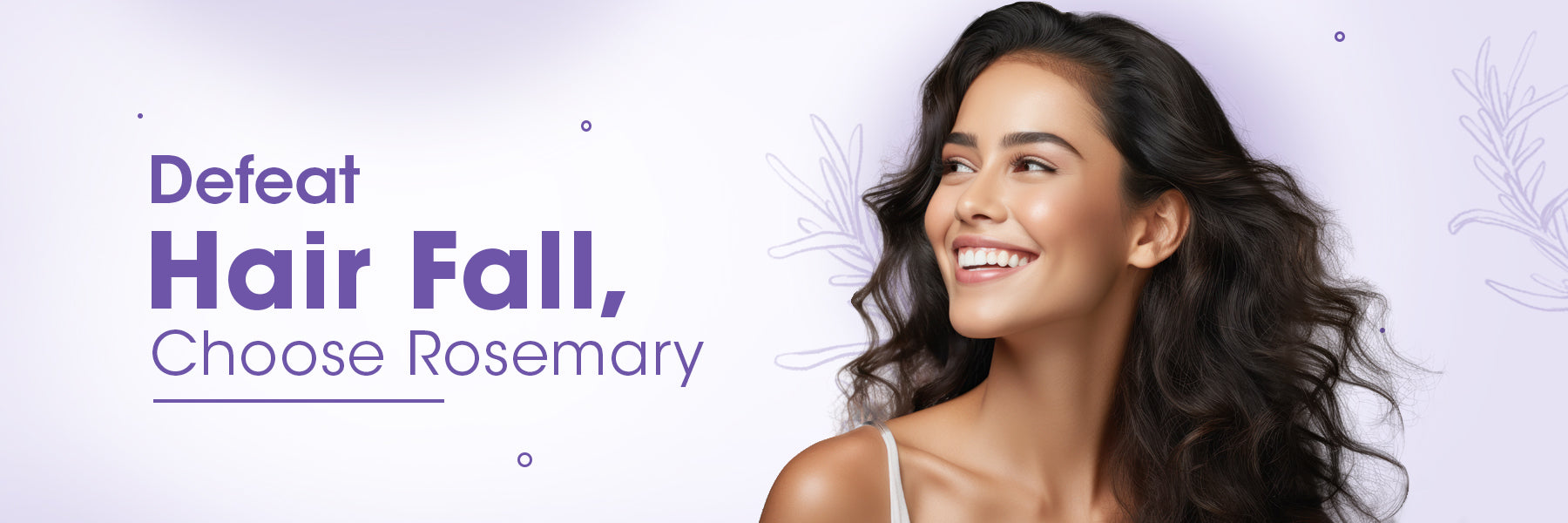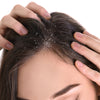

- The products are non-returnable and non-refundable
- The offer is only valid for products shown on this page
Rosemary Elegance
Transform Your Hair, Naturally
No products found
Use fewer filters or remove all
About
Hair loss, a concern that affects many, can be a distressing experience. Ayurveda provides insightful approaches to hair loss treatment, blending well with modern methodologies. Understanding the causes and adopting a comprehensive treatment plan can significantly improve hair health.Understanding Hair Loss: Ayurvedic and Modern PerspectivesHair loss, a complex issue that plagues many, can feel like a battle against one's body. Delving into Ayurvedic and modern scientific perspectives is essential to combat this issue.In Ayurveda, hair's health is deeply connected to the balance of the body's doshas – Vata, Pitta, and Kapha. Specifically, an excess of the Pitta dosha, characterized by fire and water elements, is often linked to hair loss. This imbalance can be triggered by stress, poor diet, and exposure to harsh chemicals, weakening hair roots and fall.Ayurvedic philosophy also considers the role of 'Agni' (digestive fire) in hair health. A weak Agni results in the buildup of toxins, which can adversely affect scalp and hair health. Moreover, Ayurveda stresses the importance of emotional well-being and its impact on physical health, including hair.
Modern Scientific Understanding
Modern science approaches hair loss from a more clinical perspective, identifying several key factors contributing to hair thinning and loss. These include genetic predisposition, hormonal changes (such as those during pregnancy or menopause), nutritional deficiencies, and the effects of certain medications. Alopecia areata and scalp infections also play a role. The role of hormones, particularly dihydrotestosterone (DHT), a derivative of testosterone, is well-recognized in the pattern of male and female baldness.Environmental factors like pollution, UV exposure, and lifestyle habits such as smoking and excessive use of heat styling tools are also known to exacerbate hair fall.
Integrating Ayurvedic and Modern Approaches
Integrating these two perspectives offers a more comprehensive understanding of hair health. Ayurveda's holistic approach emphasizes the importance of a balanced diet, herbal treatments, and stress management as foundational to hair health. This dovetails with modern recommendations for a nutrient-rich diet and lifestyle modifications.For instance, modern trichology (the study of hair and scalp health) may recommend topical treatments or medications to address hair loss. Ayurveda has suggested remedies and lifestyle changes to balance the doshas. By understanding both perspectives, individuals can adopt a personalized approach to hair care that respects ancient wisdom and contemporary science.
Ayurvedic Treatment for Hair Loss
Ayurvedic treatment for hair loss focuses on holistic well-being. The revered herbs Bhringraj, known as the "King of Hair", and Shikakai, the "Fruit for the Hair", are central to Ayurvedic hair care. They are known for their effectiveness in promoting hair growth and improving hair texture.
Remedies
Products like the Forest Essentials Bhringraj & Shikakai range are designed to nourish and strengthen hair. These natural formulations are gentle yet effective, reducing hair fall and promoting regrowth.
Dietary Changes
An Ayurvedic diet that balances the Pitta Dosha is essential. Including protein-rich foods and vitamins while avoiding excessively spicy and salty foods can help manage hair loss.
Lifestyle Adjustments
Reducing stress through yoga and meditation and ensuring adequate sleep are crucial in preventing hair loss.
Modern Approaches to Hair Loss Treatment
Modern hair loss remedies often involve topical treatments and medications. However, integrating these with Ayurvedic practices can enhance their effectiveness.
Hair Cleansers and Conditioners
Using sulfate-free shampoos and conditioners, like those in the Forest Essentials range, can help control hair thinning and breakage.
Scalp Treatments
Regular scalp massages with oils like Bhringraj Head Massage Oil improve blood circulation, stimulating hair growth.
Specialized Products
Products like Hair Vitalizers and Hair Thickening Sprays can aid in reducing hair loss and promoting regrowth.
Preventing Hair Loss
Prevention is key in managing hair health. A nourishing hair care ritual incorporating Ayurvedic principles and modern hair care products is vital. Combining the wisdom of Ayurveda with modern hair care practices offers a comprehensive approach to tackling hair loss. Whether it's through the use of nutrient-rich Ayurvedic formulations or adopting a healthier lifestyle, addressing hair loss requires a holistic approach. By understanding the root causes and adopting a regimen that includes both traditional and contemporary practices, one can effectively combat hair fall and enjoy the benefits of healthy, vibrant hair.
FAQs
Collapsible content
What are the key benefits of Rosemary in your hair fall collection?
Can your Rosemary hair products help with dandruff?
Are these products suitable for all hair types?
How often should I use the Rosemary shampoo and conditioner for the best results?
Is the Rosemary Anti-Hair Fall Collection free from harmful chemicals?
How does the Rosemary Anti-Hair Fall Range work to reduce hair fall?
Blogs
Trust Factors













